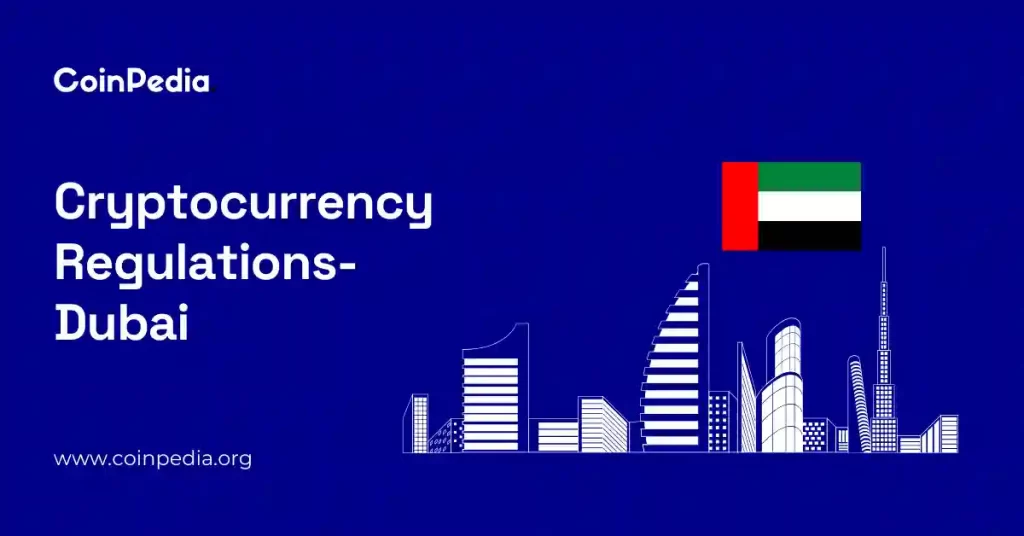Dubai’s Crypto Rulebook Tightens—But Will Traders Even Notice?
UAE regulators roll out 2025 framework with one hand while waving in VASP licenses with the other. Sandbox or straitjacket? You decide.
Free zones like DIFC now demand proof of reserves—because nothing says 'trust us' like audited spreadsheets. Meanwhile, retail investors shrug and keep stacking SATs.
The kicker? Compliance costs doubled… just as Bitcoin reclaims $100K. Coincidence? Ask your local FSA-approved advisor (and their 2% management fee).

In 2025,has strengthened the city’s role as a global crypto hub. Led by the, Dubai offers a clear and secure framework that attracts major platforms like Binance, Coinbase, Crypto.com, and OKX. These regulations aim to enhance market integrity while aligning with global AML standards.
Table of contents
- Crypto Regulation in Dubai – 2025 Timeline
- Who Regulates Cryptocurrency in Dubai?
- Crypto Tax in Dubai – 2025
- For Individuals
- Summary Table
- Crypto Adoption in Dubai
- Crypto Holdings in Dubai
- Conclusion
Crypto Regulation in Dubai – 2025 Timeline
Here are the major crypto regulatory milestones in Dubai, listed from most recent to oldest:
– VARA announced Rulebook Version 2.0 with a 30-day compliance window.
- Applies to all Virtual Asset Service Providers (VASPs) operating in Dubai.
- Introduces stricter AML protocols and mandatory client screening.
- Requires enhanced security measures and transparent reporting.
- Full compliance deadline: June 19, 2025, or risk enforcement actions.
– The Dubai Department of Finance (DOF) signs a Memorandum of Understanding (MoU) with Crypto.com.
- The partnership enables residents and businesses to pay government fees using cryptocurrency.
- This initiative supports the Dubai Cashless Strategy.
- The goal is to achieve 90% digital transaction adoption by 2026.
Who Regulates Cryptocurrency in Dubai?
Dubai follows a, with various authorities governing specific aspects of VIRTUAL asset activities:
- Virtual Assets Regulatory Authority (VARA): The primary regulatory body in Dubai, established under Law No. 4 of 2022. VARA ensures compliance with AML, KYC, and cybersecurity protocols within Dubai (excluding the DIFC).
- Dubai Financial Services Authority (DFSA): An independent regulator operating within the Dubai International Financial Centre (DIFC). It has its own framework for crypto assets, focused on investor protection and institutional clarity.
- Securities and Commodities Authority (SCA): Oversees nationwide crypto trading, enforcing systems for due diligence, transaction monitoring, and AML compliance in line with FATF standards.
- Central Bank of the UAE (CBUAE): Regulates fiat-to-crypto transactions and ensures that digital payments comply with federal financial regulations.
Crypto Tax in Dubai – 2025
For Individuals
- Zero Personal Income Tax:
Individuals in Dubai pay no income tax on cryptocurrency earnings, including profits from trading, investing, staking, or mining - No Capital Gains Tax:
There is no capital gains tax on any profits from selling or exchanging cryptocurrencies for individuals - No VAT:
Individuals are not required to pay VAT on crypto transactions for personal investment or trading
- Corporate Tax:
Crypto businesses with annual revenue exceeding AED 375,000 are subject to a 9% federal corporate tax on profits from crypto-related activities. - VAT:
Businesses may be required to charge and remit 5% VAT on qualifying sales of goods or services paid for with cryptocurrency. - Regulatory Compliance:
Businesses must register with Dubai’s Virtual Assets Regulatory Authority (VARA) and comply with anti-money laundering (AML) and know-your-customer (KYC) regulations.
Summary Table
| Category | Income Tax | Capital Gains Tax | Corporate Tax | VAT |
| Individuals | 0% | 0% | N/A | 0% |
| Businesses | N/A | N/A | 9% (if > AED 375,000 revenue) | 5% (on qualifying sales) |
Dubai imposes no personal income or capital gains tax on cryptocurrency for individuals in 2025. Crypto businesses, however, pay 9% corporate tax if their revenue exceeds AED 375,000 and may need to charge 5% VAT on certain transactions
Crypto Adoption in Dubai
Yes, cryptocurrency isin Dubai. In 2025, the UAE—led by Dubai—has one of the highest crypto adoption rates globally. The government has legalized trading in major cryptocurrencies including.
- The UAE boasts a 25.3% crypto ownership rate
- Estimated AED 8 billion ($2.2 billion) economic impact from digital wallets and crypto payment integration
| Metric | 2025 Value in UAE/Dubai |
| Crypto ownership rate | 25.3% |
| User penetration rate | 39.13% |
| Adoption growth | 210% |
| Crypto Obsession score | 98.4/100 |
| Bitcoin ATMs in UAE | 1 |
| Monthly crypto-related searches | 186,000 |
Crypto Holdings in Dubai
Theare not publicly disclosed. However, the government’sand itspoint to.
According to Binance founder, the UAE held approximately, underscoring the region’s DEEP involvement in the crypto economy.
Conclusion
Dubai continues to stand out globally as a, thanks to its strong legal structure and open regulatory environment. While many countries struggle with regulatory uncertainty, Dubai is moving forward with. With VARA at the helm and coordinated efforts from DFSA, SCA, and CBUAE, Dubai is paving the way for secure and sustainable digital asset adoption.Other Emirates in the UAE are also stepping up with, strengthening the country’s unified vision for.
Never Miss a Beat in the Crypto World!Stay ahead with breaking news, expert analysis, and real-time updates on the latest trends in Bitcoin, altcoins, DeFi, NFTs, and more.


